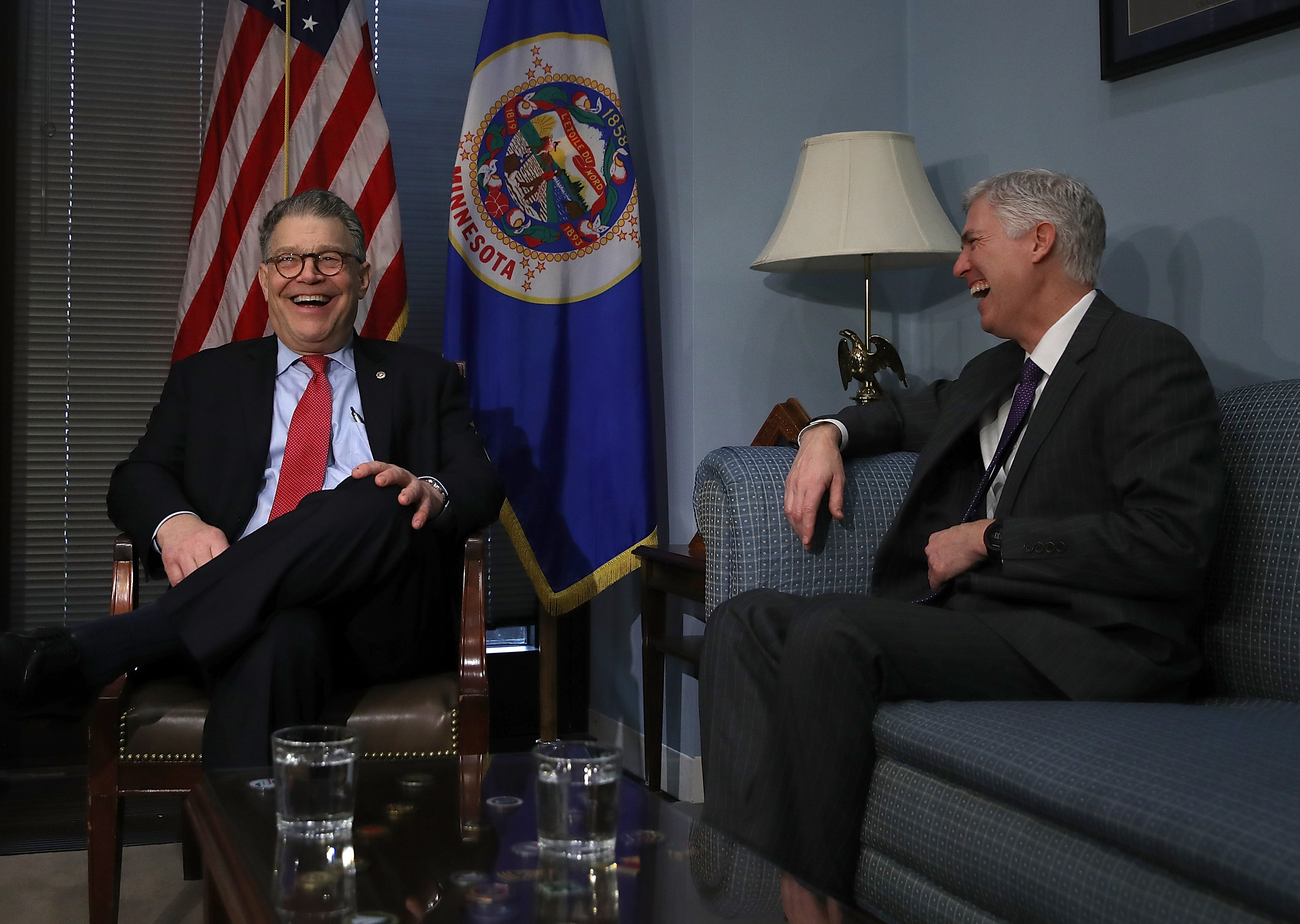
A trucker was stranded on the side of the road, late at night, in cold weather, and his trailer brakes were stuck. He called his company for help and someone there gave him two options. He could drag the trailer carrying the company’s goods to its destination (an illegal and maybe sarcastically offered option). Or he could sit and wait for help to arrive (a legal if unpleasant option). The trucker chose None of the Above, deciding instead to unhook the trailer and drive his truck to a gas station. In response, his employer, TransAm, fired him for disobeying orders and abandoning its trailer and goods.
That’s the fascinating scenario and story that could make for a great TV show. It’s also the first paragraph of Judge Neil Gorsuch’s dissent in the case, which law professor Jed Handelsman Shugerman wrote on Slate today constitutes one of the most callously written opinions he’s ever read.
The trucker was fired but was ordered reinstated by an administrative review board, a judgement upheld by Gorsuch’s colleagues on the Court of Appeals over his objection.
“It might be fair to ask whether TransAm’s decision was a wise or kind one,” Gorsuch wrote. “But it’s not our job to answer questions like that. Our only task is to decide whether the decision was an illegal one.”
The Department of Labor says that TransAm violated federal law, in particular 49 U.S.C. § 31105(a)(1)(B). But that statute only forbids employers from firing employees who “refuse[] to operate a vehicle” out of safety concerns. And, of course, nothing like that happened here. The trucker in this case wasn’t fired for refusing to operate his vehicle. Indeed, his employer gave him the very option the statute says it must: once he voiced safety concerns, TransAm expressly — and by everyone’s admission — permitted him to sit and remain where he was and wait for help. The trucker was fired only after he declined the statutorily protected option (refuse to operate) and chose instead to operate his vehicle in a manner he thought wise but his employer did not. And there’s simply no law anyone has pointed us to giving employees the right to operate their vehicles in ways their employers forbid. Maybe the Department would like such a law, maybe someday Congress will adorn our federal statute books with such a law. But it isn’t there yet. And it isn’t our job to write one — or to allow the Department to write one in Congress’s place.
Given that the trucker was freezing, does that view of the law lack a certain humanity in deference to the literal nature of law? That was at the heart of Sen. Al Franken’s questioning of Gorsuch today.
“Gorsuch was demonstrating his firm belief in the principle that the actual words of a law should be strictly applied by the court,” CNN legal analyst Paul Callan writes. “This doctrine, often referred to as textualism, stands for the proposition that it is up to the legislature to make the law and is up to judges to strictly apply the actual words of the law.”
Gorsuch maintained that the actual words of the statute in question would only back the driver when he was “operating” both the cab and the trailer as a single unit. Obviously, he couldn’t “operate” the truck and trailer together and drive away for help and warmth because the brakes on the trailer were frozen. The other judges on the 10th Circuit were willing to apply a dollop of common sense and give the driver the benefit of the doubt.
In his dissent, Gorsuch dismissed his judicial colleagues’ concerns about health and safety.
In their view, an employee should be protected not just when he “refuses to operate a vehicle” but also when he “refuses to operate a vehicle in the particular manner the employer directs and instead operates it in a manner he thinks safe.” Yet those words just aren’t there; the law before us protects only employees who refuse to operate vehicles, period. Imagine a boss telling an employee he may either “operate” an office computer as directed or “refuse to operate” that computer. What serious employee would take that as license to use an office computer not for work but to compose the great American novel? Good luck.
“Which judges write like this?” Professor Shugarman asked in his essay today. “Those who aspire to be the next Scalia.”
“His lack of self-awareness of his theory’s flaw plus his acerbic dismissiveness of real-world conflicts are not a good sign that he has the appropriate judicial temperament for the Supreme Court,” he concluded.
